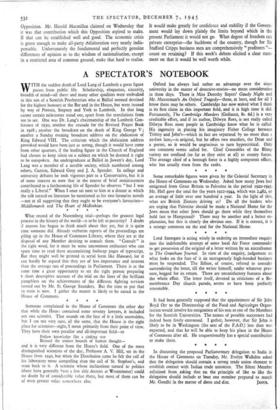Oxford has always had rather an advantage over the sister
university in the matter of detective-stories—no mean consideration in these days. There is Miss Dorothy Sayers' Gaudy Night and Mr. Masterman's An Oxford Tragedy—those, at least, and for all I know there may be others. Cambridge has now staked what I think is its first claim in this important field, and it is high time it did. Fortunately, The Cambridge Murders (Gollancz, 8s. 6d.) is a very creditable effort, and if its author, Dilwyn Rees, is not really called Dilwyn Rees most people in Cambridge know what he is called. His ingenuity in placing his imaginary Fisher College between Trinity and John's—which in fact are separated by no more than a 20-foot lane,—is original, but he offers two murders, the Dean and a porter, so it would be ungracious to turn hypercritical. Only one comment seems called for. Chief Constables of the Blimp variety are confined (so far as they exist at all) to county forces. The average chief of a borough force is a highly competent officer, who has usually risen from the ranks.
* * * *






























 Previous page
Previous page